'SCARFACE' ACTOR ALSO APPEARS IN UPCOMING 'STAND UP GUYS' WITH PACINO
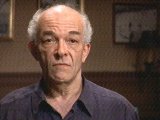 As co-creator Ryan Murphy stated last month, the current season of American Horror Story is under the influence of Brian De Palma. The first episode featured repeated music cues from Pino Donaggio's score for De Palma's Carrie, and the whole season so far has echoes of De Palma's Sisters here and there. Tonight's episode introduced a new character: a Nazi hunter named Sam Goodwin, played by Mark Margolis, who is perhaps best known as Alberto "The Shadow" in De Palma's Scarface. Margolis also made an uncredited appearance as a patient in De Palma's Dressed To Kill, another film Murphy mentioned as a direct influence on this season of American Horror Story. (Margolis has also gained recognition of late in another Scarface-influenced TV show, Breaking Bad.)
As co-creator Ryan Murphy stated last month, the current season of American Horror Story is under the influence of Brian De Palma. The first episode featured repeated music cues from Pino Donaggio's score for De Palma's Carrie, and the whole season so far has echoes of De Palma's Sisters here and there. Tonight's episode introduced a new character: a Nazi hunter named Sam Goodwin, played by Mark Margolis, who is perhaps best known as Alberto "The Shadow" in De Palma's Scarface. Margolis also made an uncredited appearance as a patient in De Palma's Dressed To Kill, another film Murphy mentioned as a direct influence on this season of American Horror Story. (Margolis has also gained recognition of late in another Scarface-influenced TV show, Breaking Bad.)Margolis and Al Pacino appear in the upcoming Stand Up Guys, which, judging by the trailer below, has surface echoes of De Palma's Carlito's Way. And when Margolis appears in the trailer as some kind of crime boss ordering a hit on Pacino, who has just been released from prison, one can't help but think of their roles in Scarface, where Pacino as Tony Montana ends up killing Margolis' Alberto, and sealing his own fate in the process. Stand Up Guys is directed by Fisher Stevens, who incidentally once dated Scarface's Michelle Pfeiffer for about three years in the early 1990s. The film had its world premiere last month at the Chicago International Film Festival, and The Hollywood Reporter's Duane Byrge called it "a raunchy and touching comedy" that "lubricates its old joints—of the plot, genre and actors—quite entertainingly." Variety's Alissa Simon states that the film incorporates "conventions from and sendups of countless other pics," but feels that the "talky, tongue-in-cheek feature is most likable when the main characters are simply playing off each other."
Updated: Wednesday, November 14, 2012 11:33 PM CST
Post Comment | Permalink | Share This Post





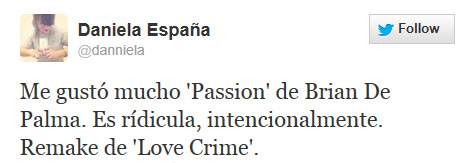
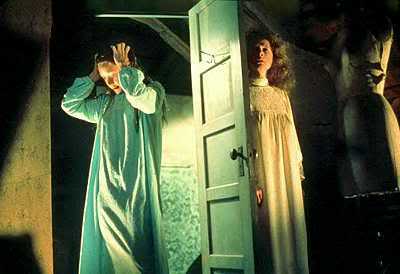 When I
When I 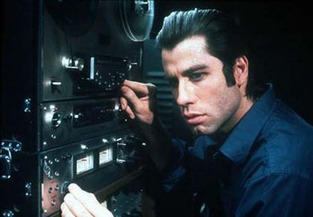
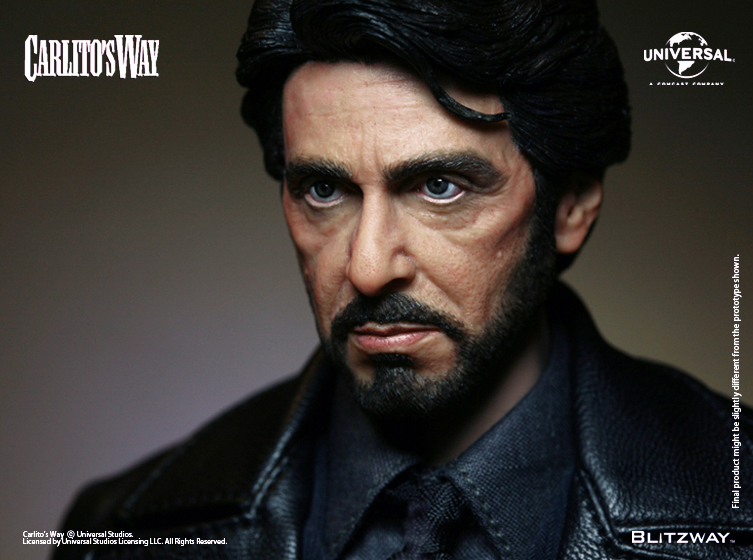
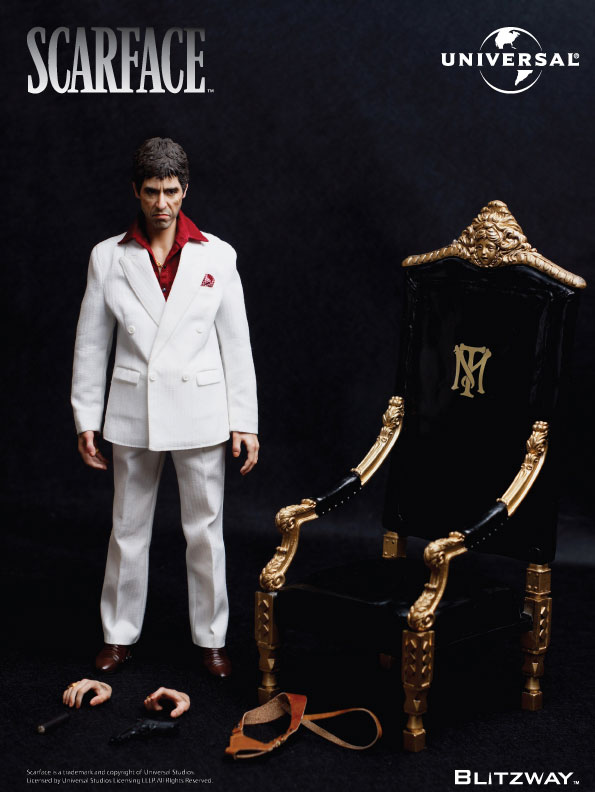
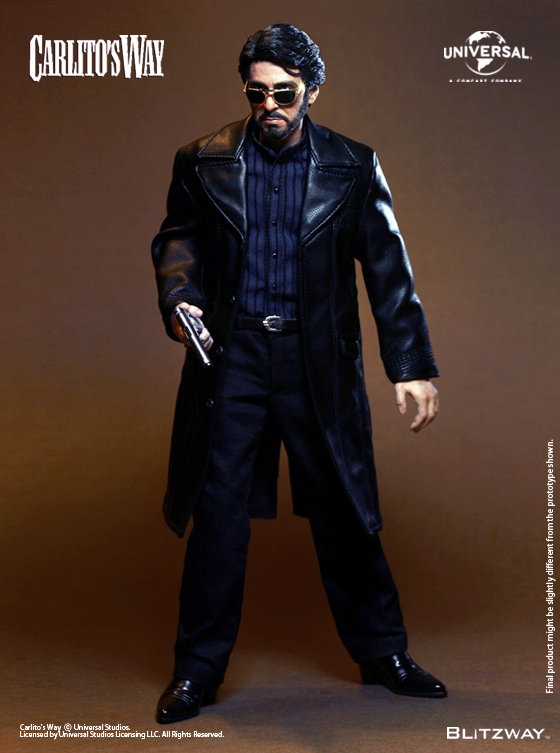
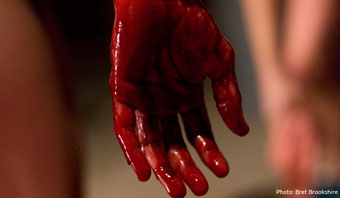
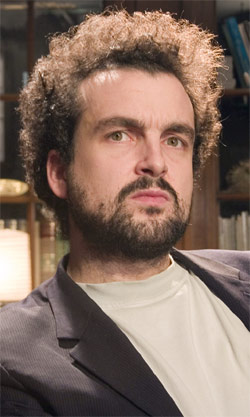 Nacho Vigalondo, whose 2007 film Timecrimes is said to be a variation on Brian De Palma's Body Double, mentioned another De Palma film, Blow Out, in his description of the currently-shooting Open Windows.
Nacho Vigalondo, whose 2007 film Timecrimes is said to be a variation on Brian De Palma's Body Double, mentioned another De Palma film, Blow Out, in his description of the currently-shooting Open Windows. 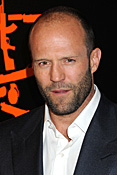 News has come (from
News has come (from